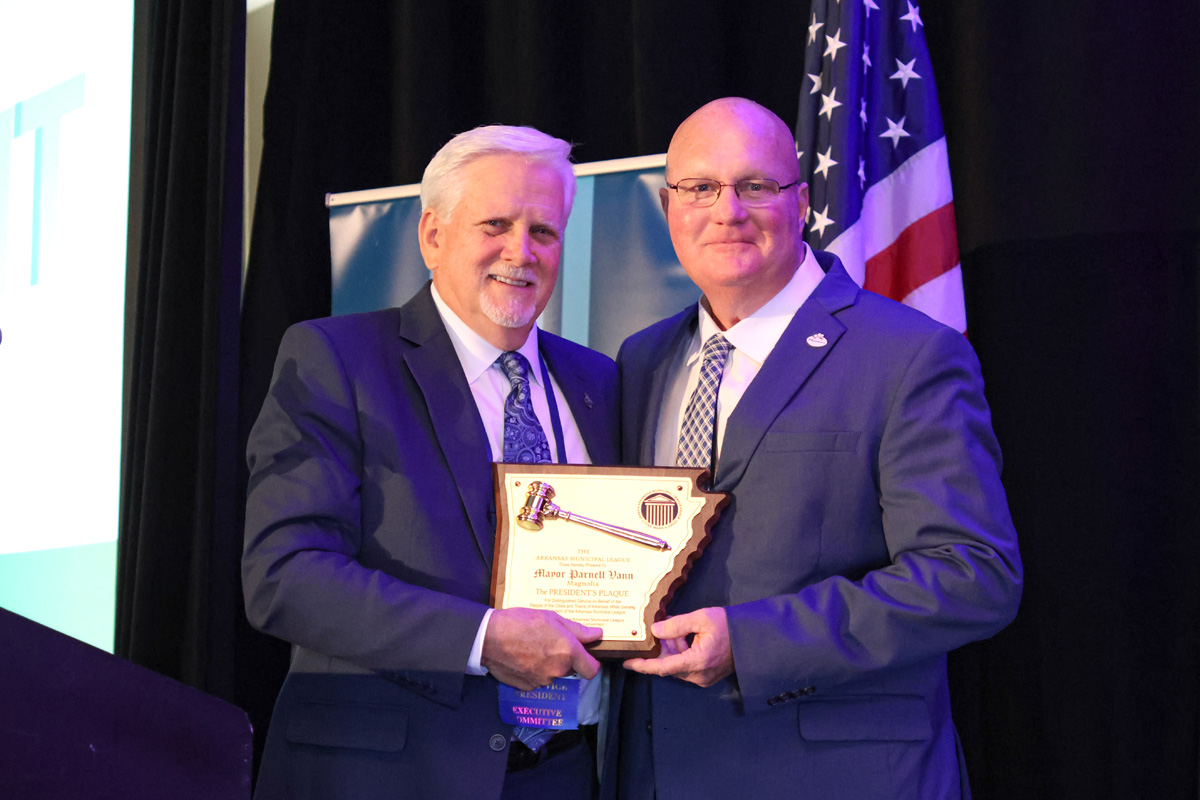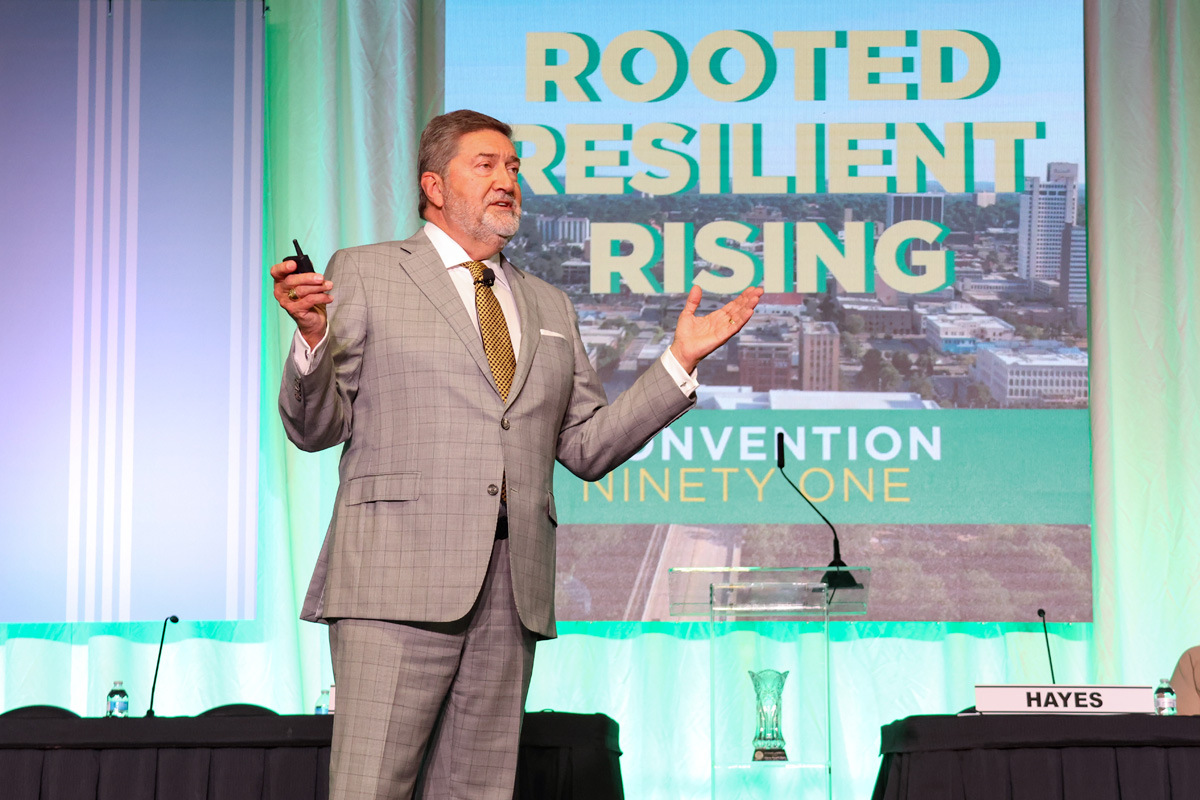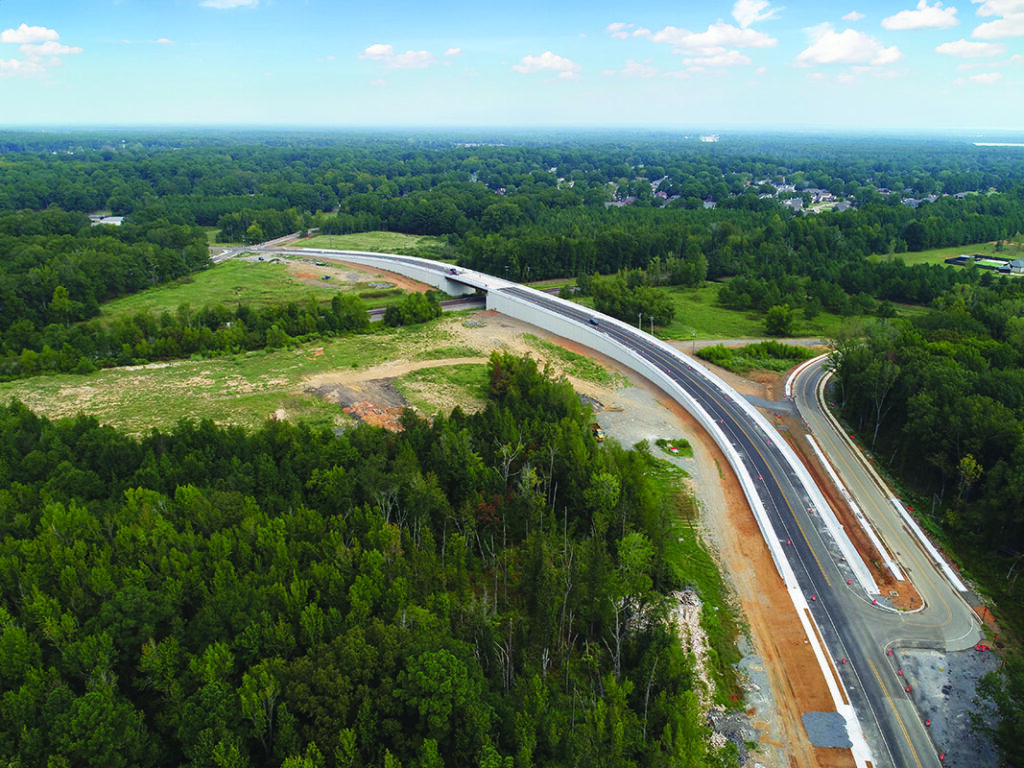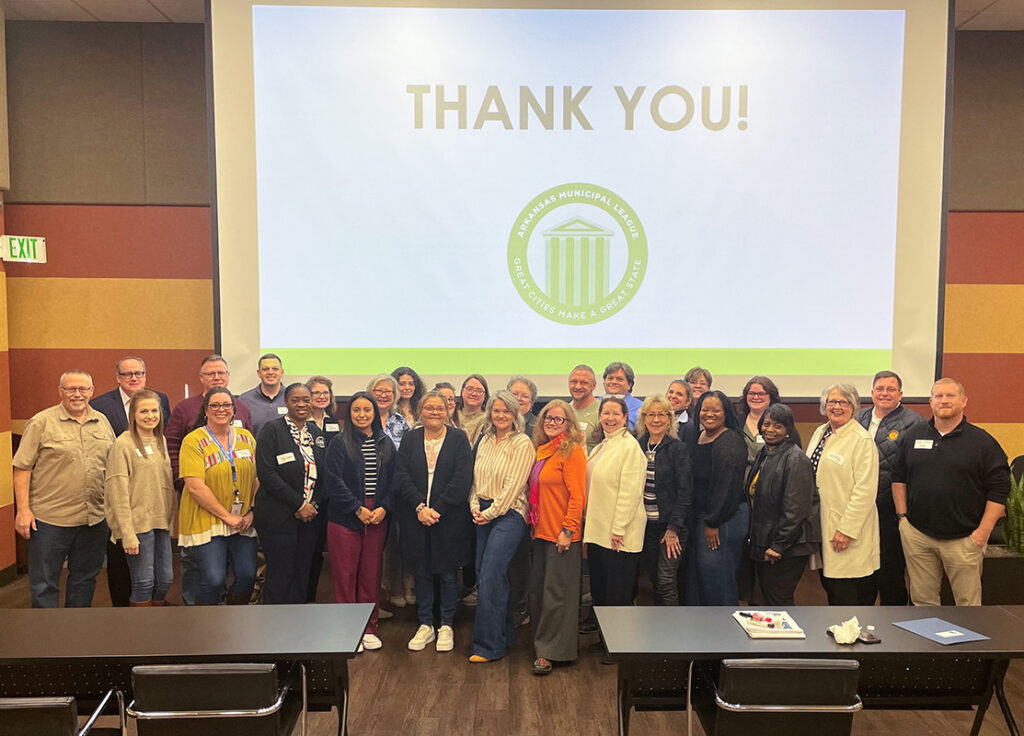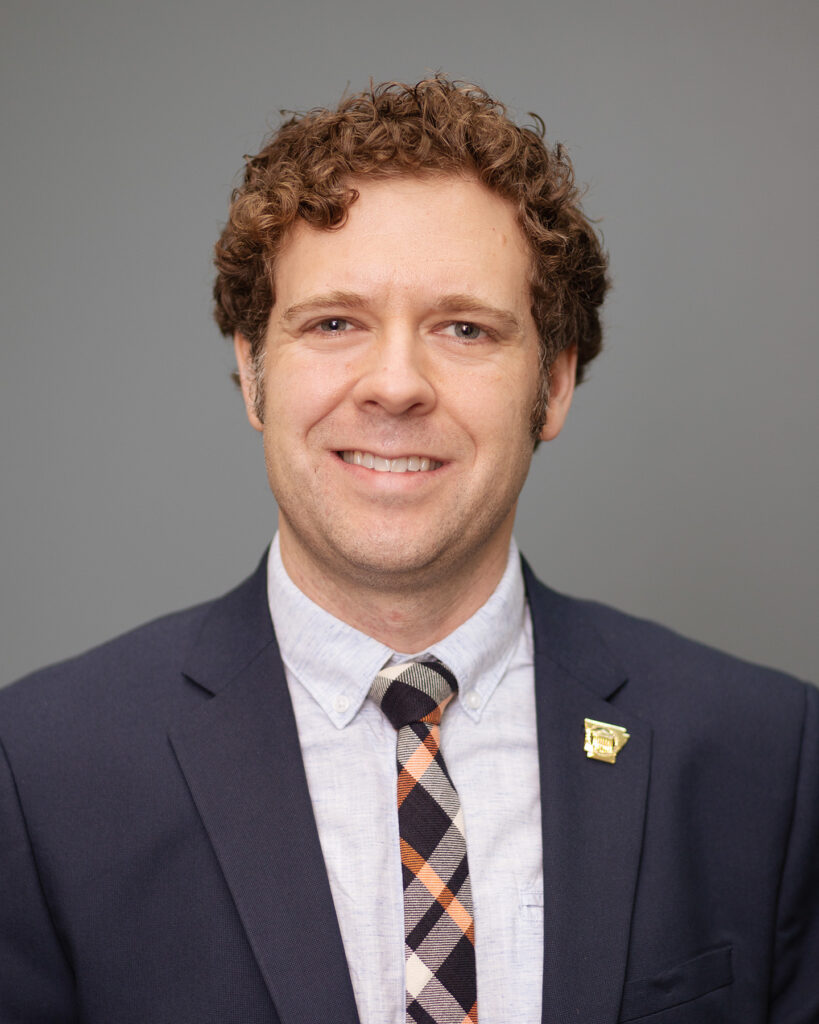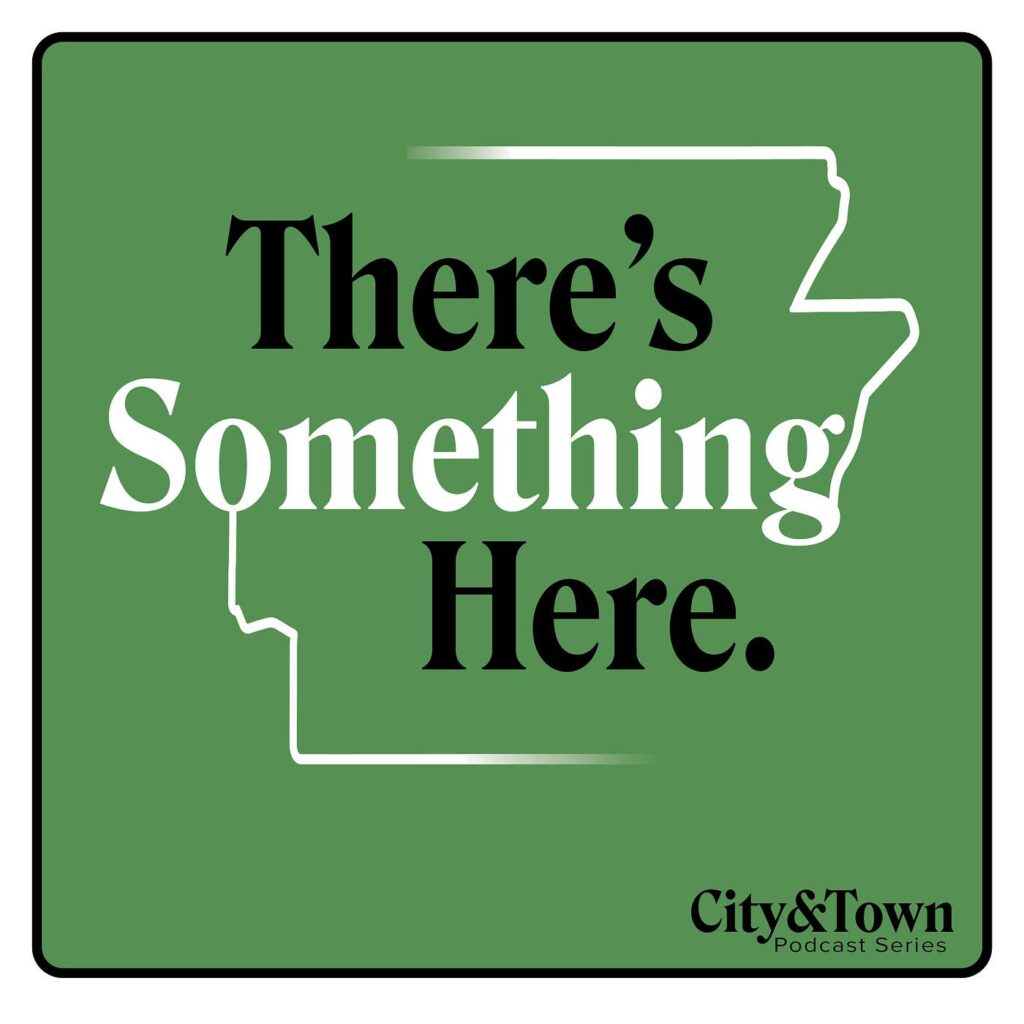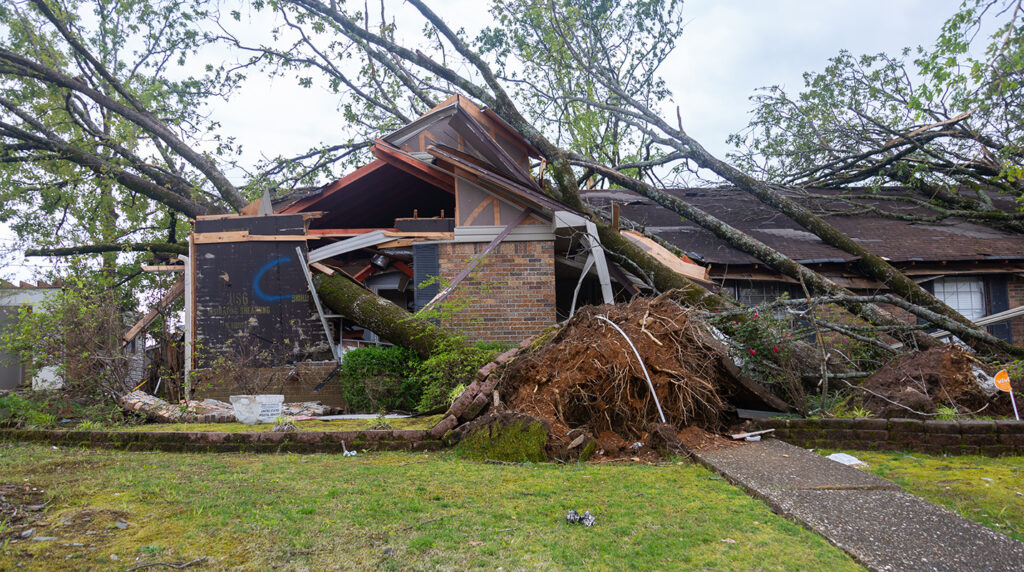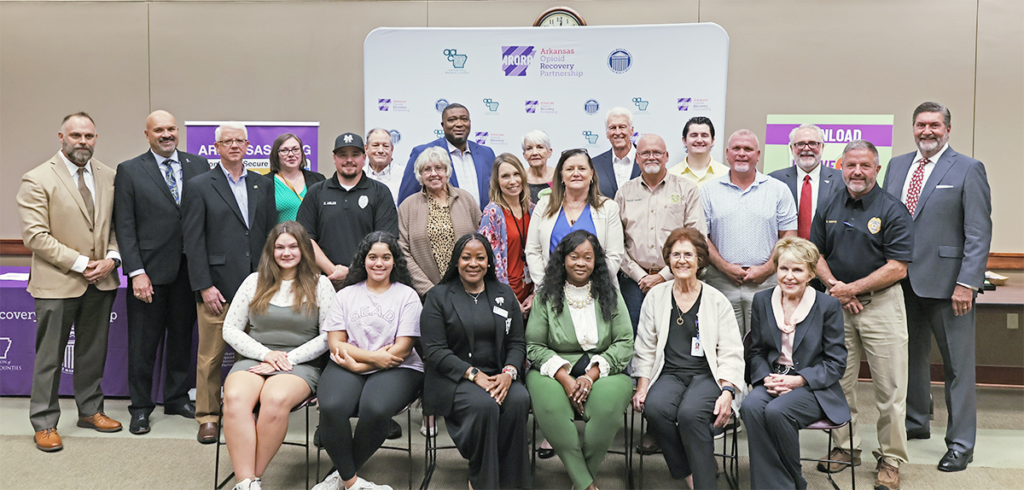Under the banner of Rooted, Resilient and Rising Together, elected officials and personnel from cities and towns across Arkansas gathered at the Little Rock Marriott and Statehouse Convention Center June 18-20 for the 91st Annual Convention of the Arkansas Municipal League, where they discussed a variety of issues affecting local government, elected new officers and adopted a package of resolutions that will guide League advocacy efforts for the next year.
Attendance was strong and continued an upward trend, with more than 800 mayors, council members, department heads and other municipal personnel registered and with more than 1,200 participants overall.
During the annual business meeting on the morning of Friday, June 20, the League membership elected a new slate of officers for 2025-2026. The officers are: Greenwood Mayor Doug Kinslow, president; Beebe City Clerk/Treasurer Carol Westergren, first vice president; Gassville Mayor Jeff Braim, District 1 vice president; Heber Springs Mayor Kasey Griffin, District 2 vice president; Pea Ridge Mayor Nathan See, District 3 vice president; and El Dorado Mayor Paul Choate, District 4 vice president.
During the meeting, the membership also approved the adoption of a package of eight resolutions, including one in support of Senate Joint Resolution 15, a proposed constitutional amendment that would grant municipalities increased authority to promote economic development. The issue will appear on the statewide ballot in the general election on November 10. The resolutions will appear in the League’s updated Policies & Goals 2025-2026 publication, which, in addition to being available online in August will be included as a supplement to the autumn issue of City & Town.
Education and professional development are major components of the League’s mission, and Convention 91 included numerous opportunities for elected officials, department heads and personnel to learn best practices for local governance and receive up-to-date information. Thursday’s agenda featured 14 breakout sessions offering in-depth discussions of topics like navigating the Arkansas Freedom of Information Act, creating successful bond improvements, addressing neglected properties and cybersecurity. The sessions qualified attendees for credit as part of the League’s Arkansas Civic Education (ACE) Program, the voluntary continuing education and certification program for municipal officials and personnel, now in its second year. Visit the Resources & Education page at arml.org to learn more about the program, including the new ACE SafeTrack certification program, which offers safety training courses tailored to the municipal workplace.
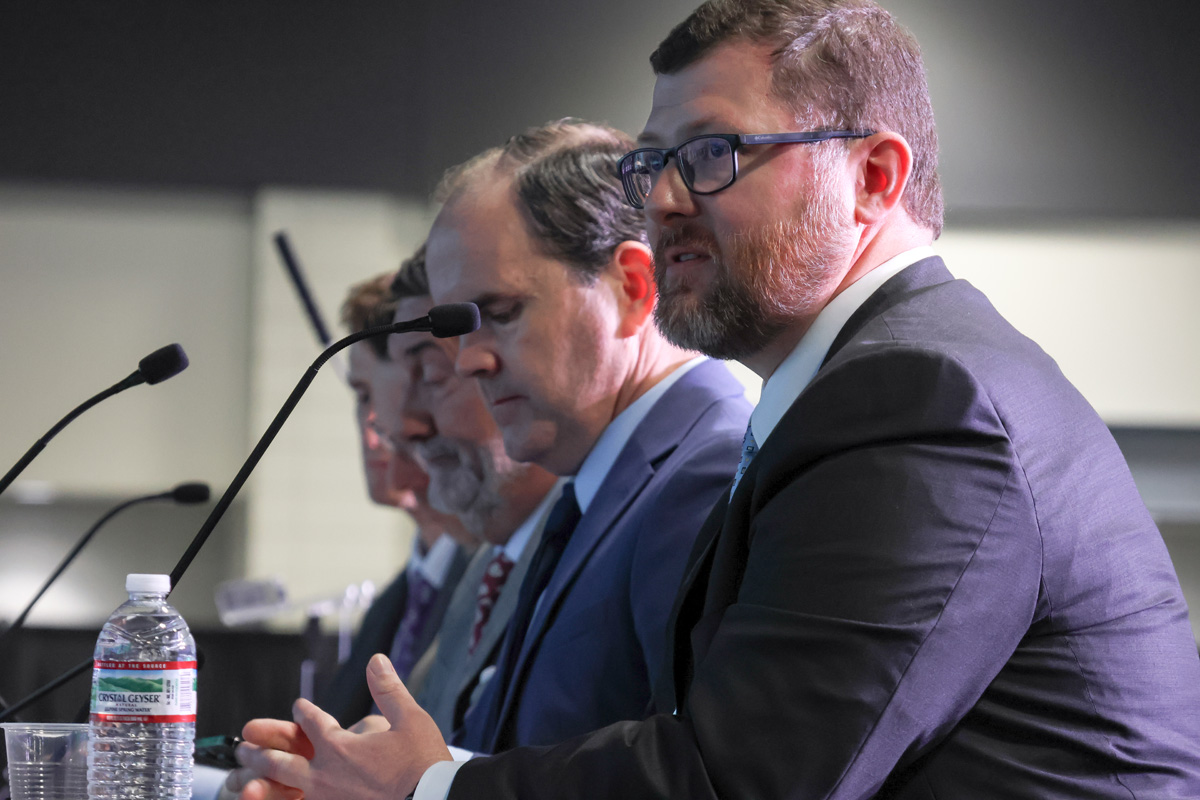
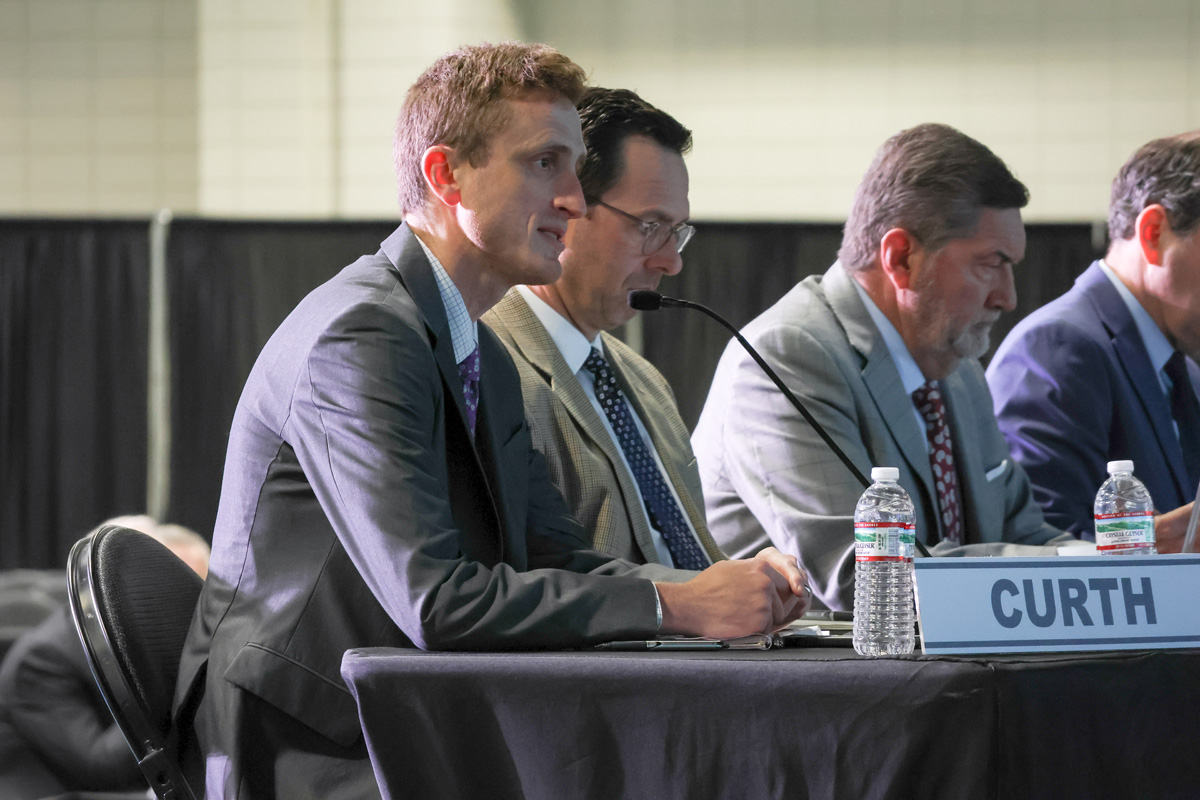
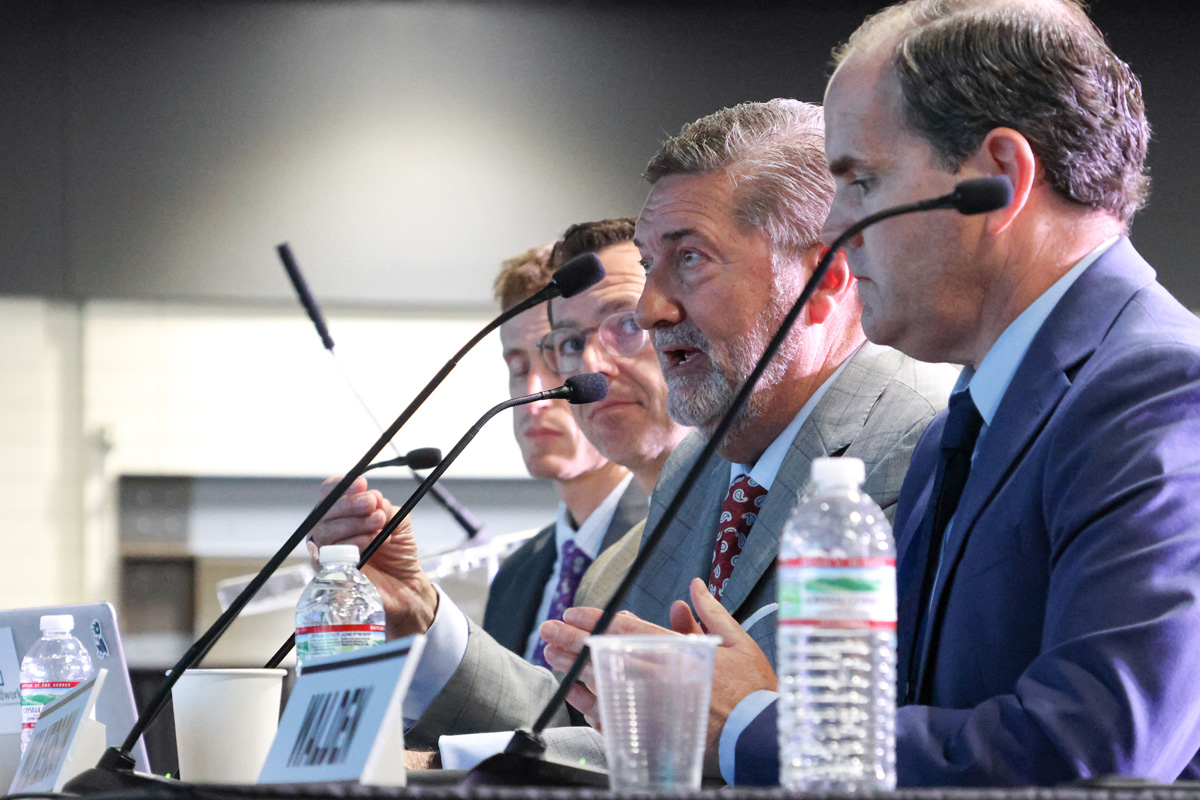
The League invited the members of the Arkansas Legislature’s Joint City, County and Local Affairs Committee to the Convention 91 stage on Wednesday, June 18 to discuss several bills passed during this year’s 95th General Assembly that affect the planning and zoning functions of local government. Act 313 gives cities flexibility in allowing accessory dwelling units, or ADUs, to increase housing availability in existing neighborhoods. Fayetteville has been at the forefront on this issue, Garver Urban Planning Leader James Walden, top, told the committee. “Every single community where I’ve worked, where I’ve brought up the issue of accessory dwelling units, every single city council says yes, I think we need to do that.” Over the past 20 years, Fayetteville has lowered hurdles to approving ADUs and gets a few dozen permit applications each year, said Fayetteville Development Services Director Jonathan Curth, center. “This is not the silver bullet for housing, it’s not going to solve all of it, but it is a very effective and incremental tool that existing neighborhoods can use,” he said. Addressing issues surrounding housing and planning requires a partnership between state and local governments, League Executive Director Mark Hayes, bottom, said. “It’s the kind of thing that benefits everyone—it’s not us versus them.”
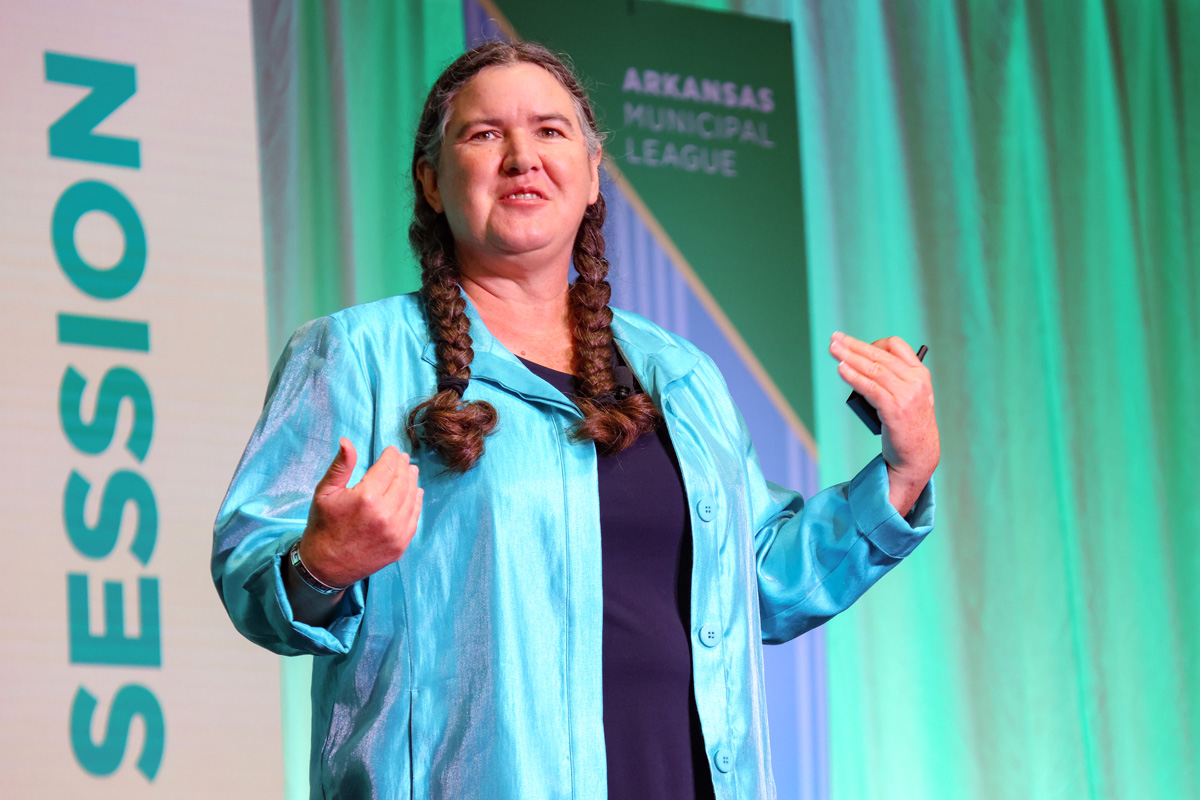
Keynote speaker Becky McCray brought her Idea Friendly Method to the Convention 91 stage on Wednesday, June 18, offering tips—especially for small cities and towns—to turn innovative ideas into action in the face of negativity and resistance to change. When new ideas are presented, others often throw up “brick walls,” not because they want you to fail, but because they think they’re protecting you from failure, she said. “While you’re making decisions about your community, the choice isn’t between where we are right now (and everything is fine and we’re safe) and change (which is scary, and over there). The choice we have to make is between the change that we will create when we decide to act and the change that’s going to happen to us if we fail to act.”
At the conclusion of the annual business meetings of the League’s optional programs on Friday, June 20, Executive Director Mark Hayes presented his annual report to the membership on the state of the organization and its programs. Each of them, from the benefit programs like Municipal Health and Workers Comp to the new and growing ACE Program are “robust, good programs operated by very dedicated people,” he said. Hayes provided an overview of the participation in the League’s optional benefit programs, training and certification program participation, and other key stats from the past year. Those numbers and other important information are available in the 2025 annual report, which is available here and on page 57 of the Summer issue of City & Town. Hayes praised the membership for their important service to their communities, often in the face of unmerited criticism and during divisive political eras such as this one. “The most important governmental unit is not the federal, the state or the county. It’s you. What you do makes a difference every single day in people’s lives. Every minute of every day in people’s lives. You are the true service government.”
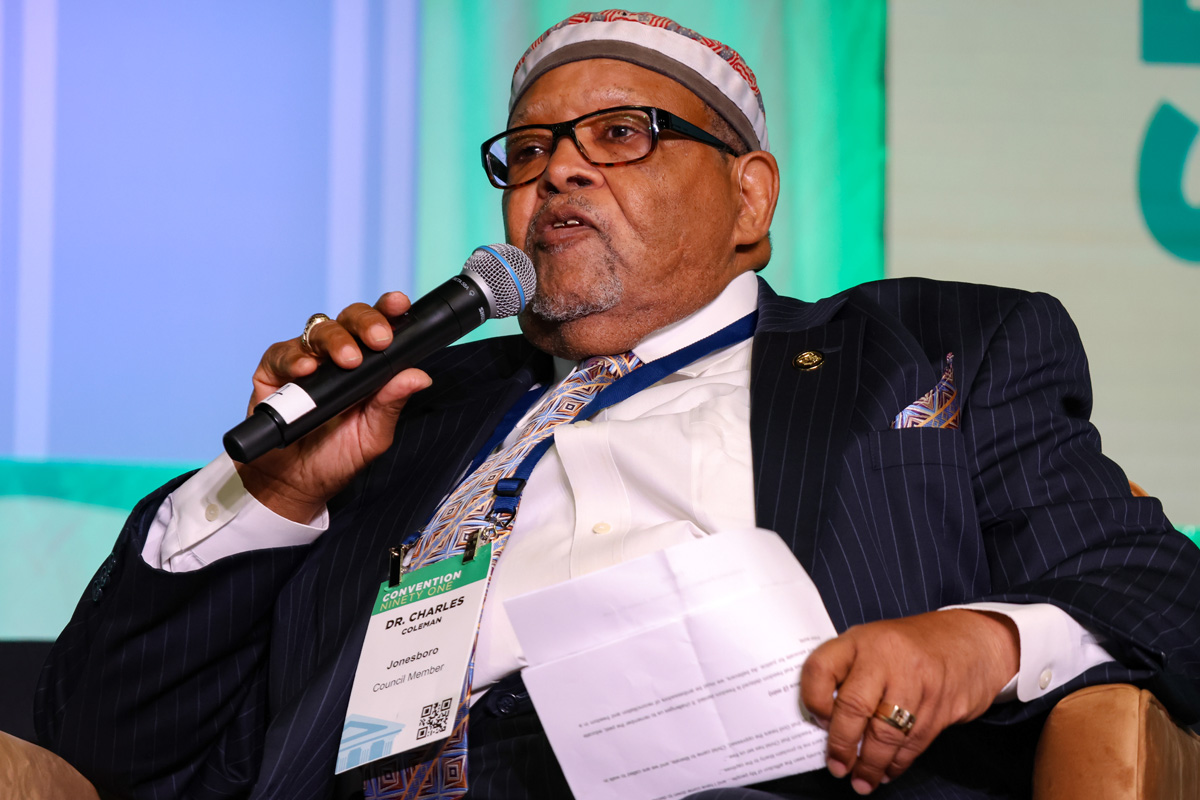
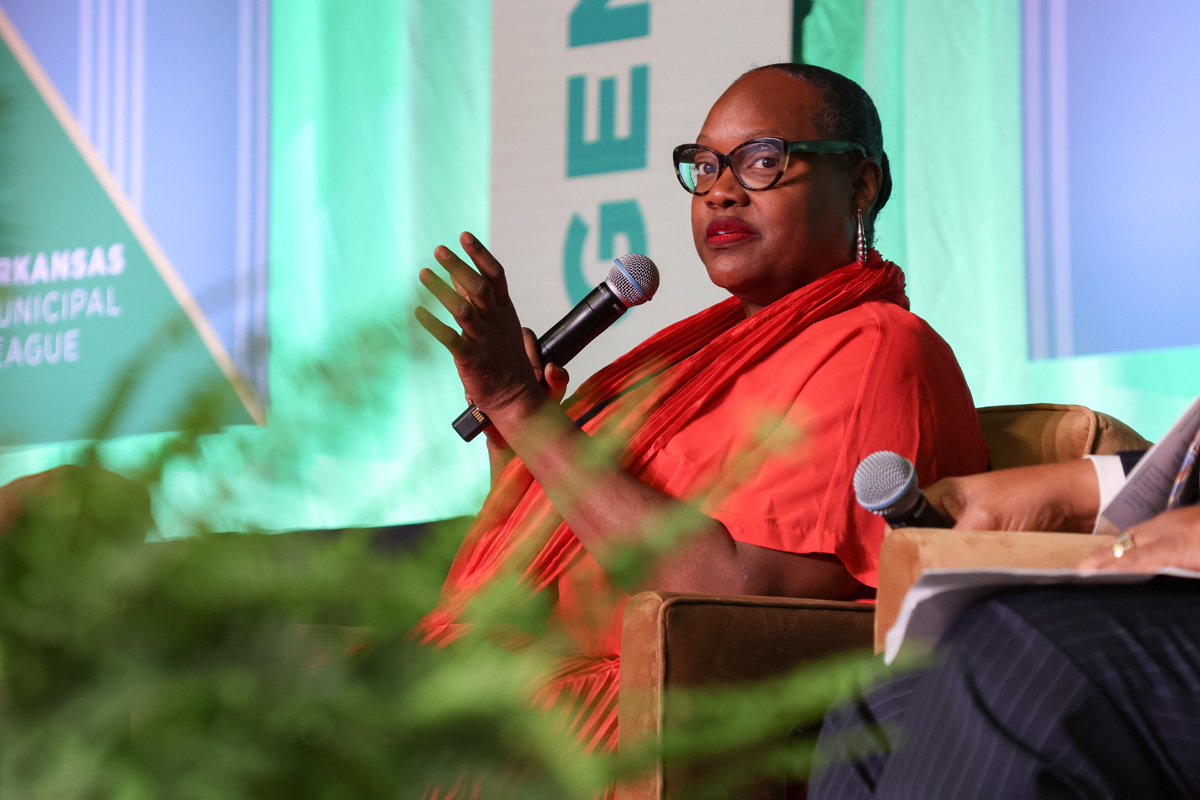
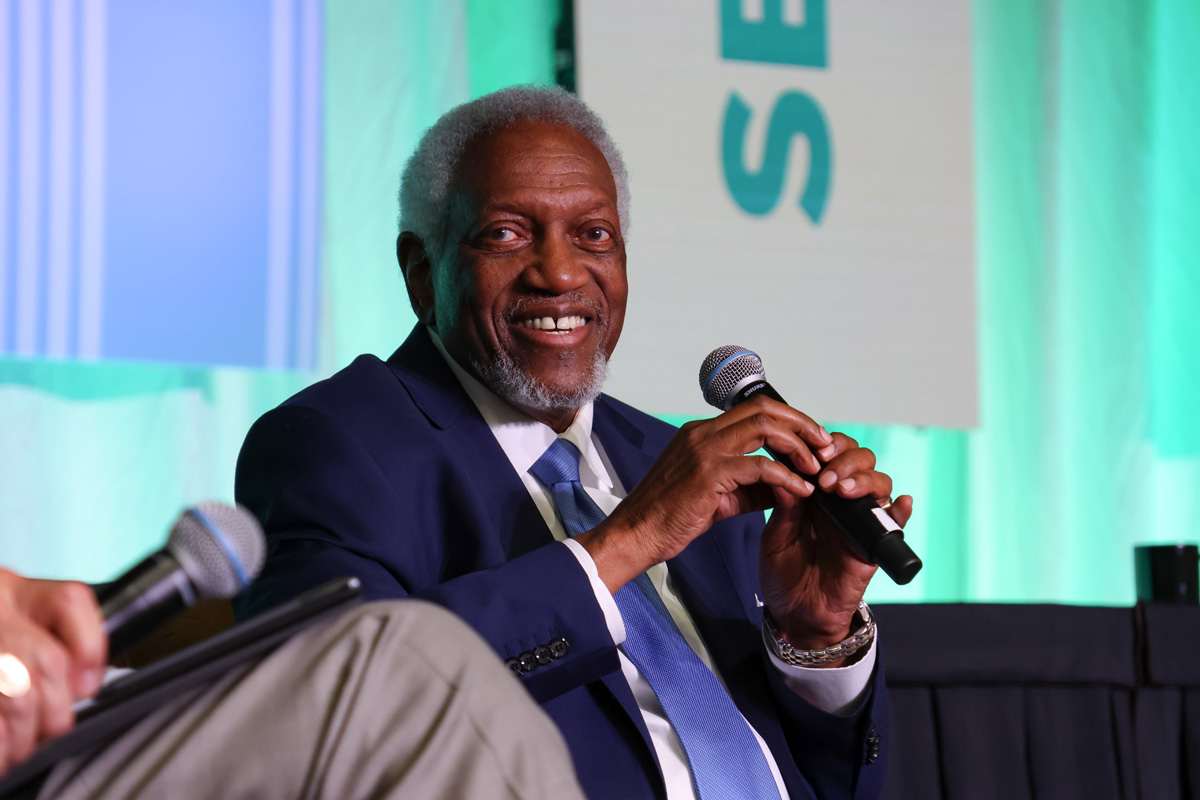
The Thursday of Convention 91 coincided with Juneteenth National Independence Day, when we celebrate the day in 1865 when Union General Gordon Granger began the enforcement of the Emancipation Proclamation in Galveston, Texas. The League welcomed Fort Smith Mayor George McGill, Pine Bluff Mayor Vivian Flowers and Jonesboro Council Member Dr. Charles Coleman to the stage for a discussion with League Executive Director Mark Hayes about the history and significance of the holiday.
Led by an energetic youth movement, Juneteenth had been celebrated in Fort Smith for many years before it became a federal holiday, and they hoped for the day it would be recognized as such, McGill said. “And lo and behold it did become a national holiday. So early on we used Juneteenth as a day, not only to celebrate our past but talk and have conversations about the future of Fort Smith, what it would look like, and what it should look like and the roles that we would play in the growth and development of our city.”
For too long the significance of Juneteenth was not often discussed outside of the Black community, Flowers said, and that is changing. “It is our history. I think that this celebration and this observance should be something that every American recognizes as an American holiday, as American as July Fourth.” Dr. Coleman agreed with that sentiment. “Let’s explain ‘community’ in 2025. It means all people to celebrate this day. Amen? This is for everybody in this country.”
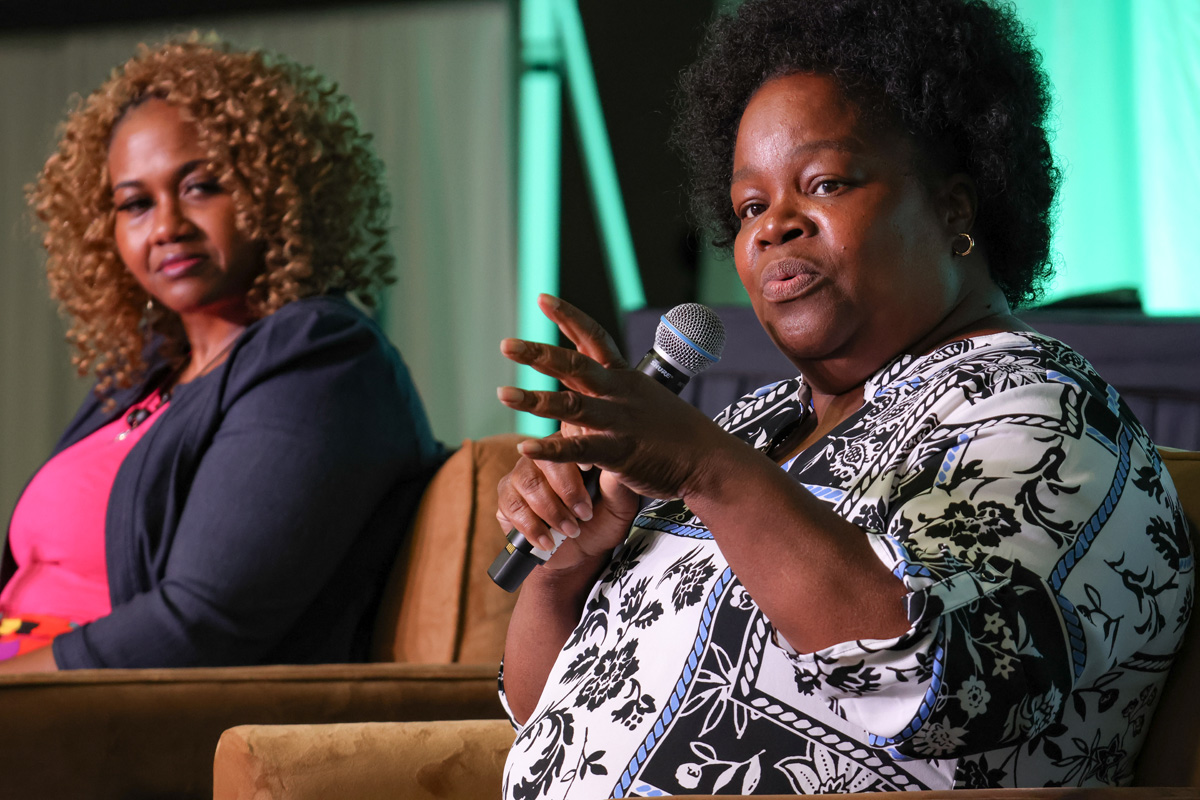
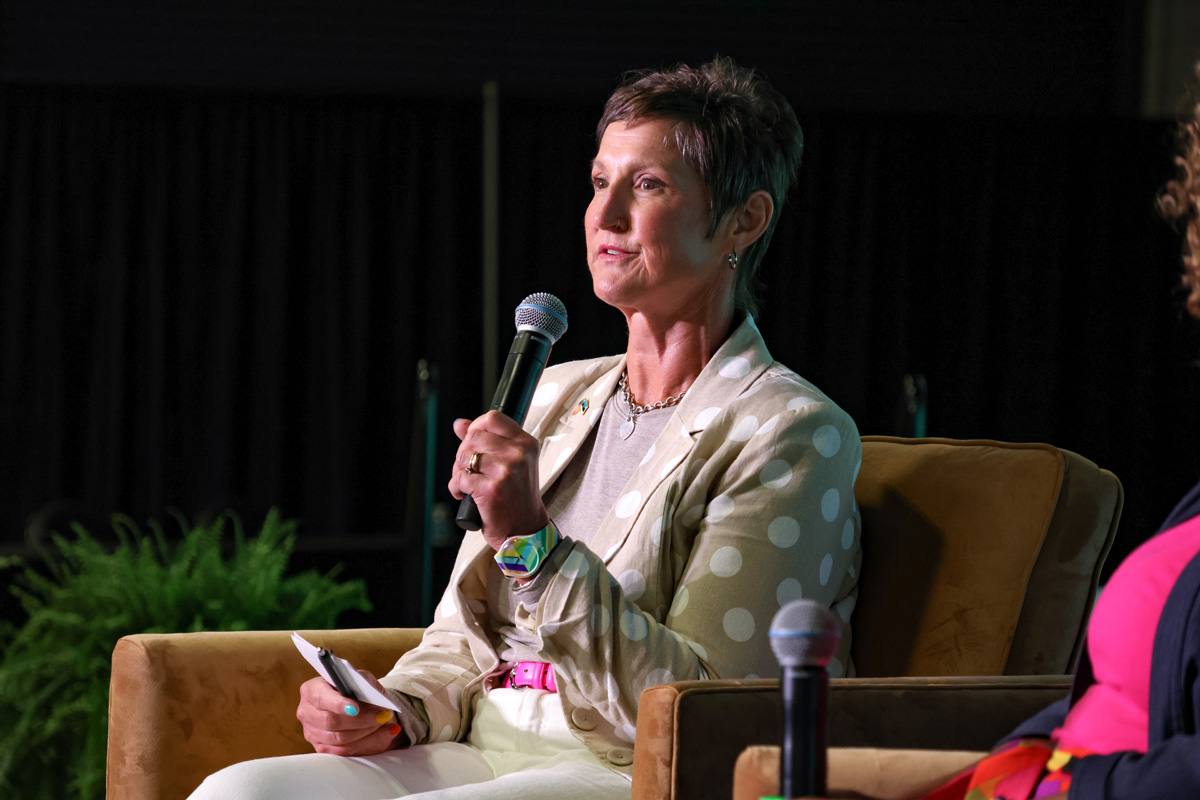
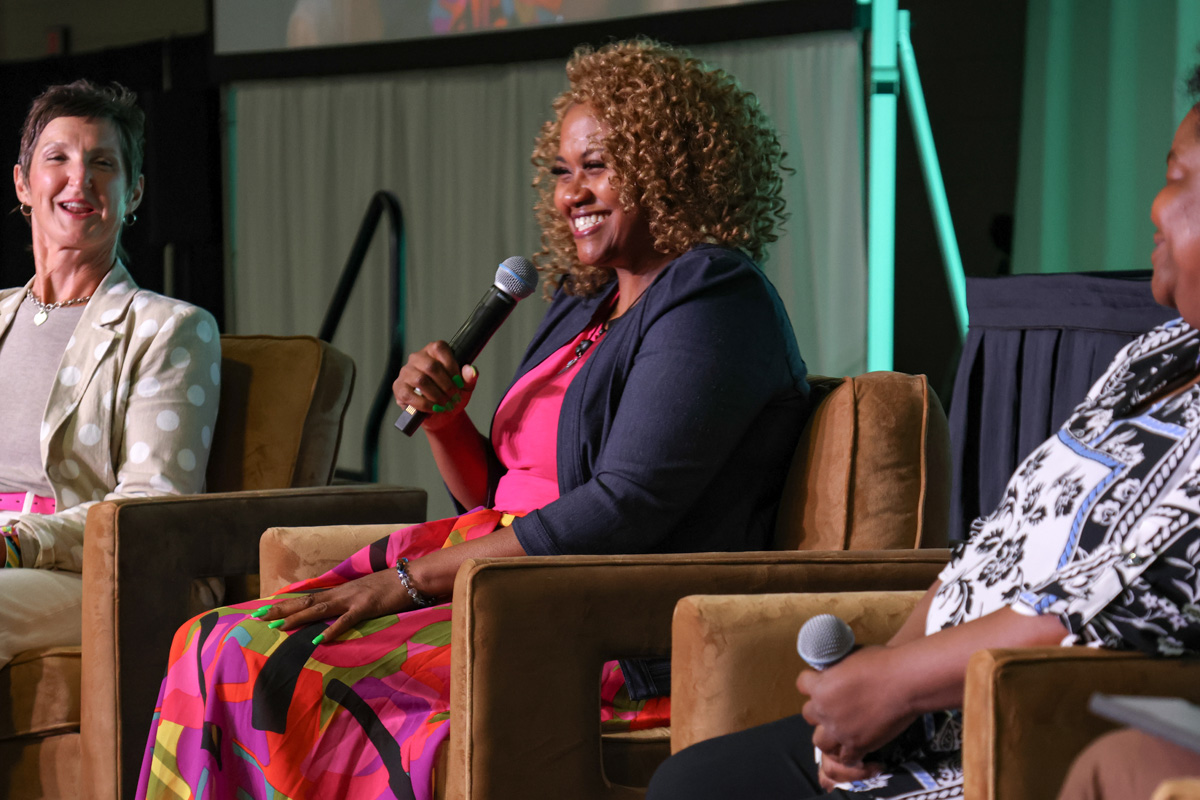
The majority of Arkansas’ 500 cities and towns have populations under 5,000. To be the mayor of a small community often means getting your hands—and boots—dirty as you work to carry out the daily business of running a municipality.
In the convention’s well-attended final general session, “Drugs, Dogs & Drainage,” three mayors who have been there, done that—from left, Elaine Mayor Lisa Hicks-Gilbert, Keo Mayor Stephanie White and Eudora Mayor Tomeka Butler—shared tales from the ground that resonated with their peers in the audience. When it comes to the city’s aging water system, Mayor Butler has found herself more than once “in the hole” helping her employees fix leaks. “I feel like it’s good when I can assist, because I don’t know what I’m doing but I feel like I do—if I can just pass you a wrench or something that you need, or help get the rocks out of the water pump while we’re trying to pump this water out.”
Water and wastewater issues take up most of Mayor White’s time, she said, and when she took office, she set about improving things. “I basically started with no money, no tools, no clamps, no nothin’, and I took my children and I read all 170 meters.” She now has her water and wastewater licenses and Keo just finished $2.6 million in new water infrastructure.
“Oh my goodness, we do not have long enough to talk about the water!” Mayor Hicks-Gilbert said. “We are literally living on a prayer with our water system.”
Elaine is actively searching for a dog catcher, though, because people dropping off strays in town is an ongoing problem and a safety issue, particularly for seniors. When a new stray turns up, the mayor knows right away. “I know most of the dogs in Elaine,” she said. “I have to.”
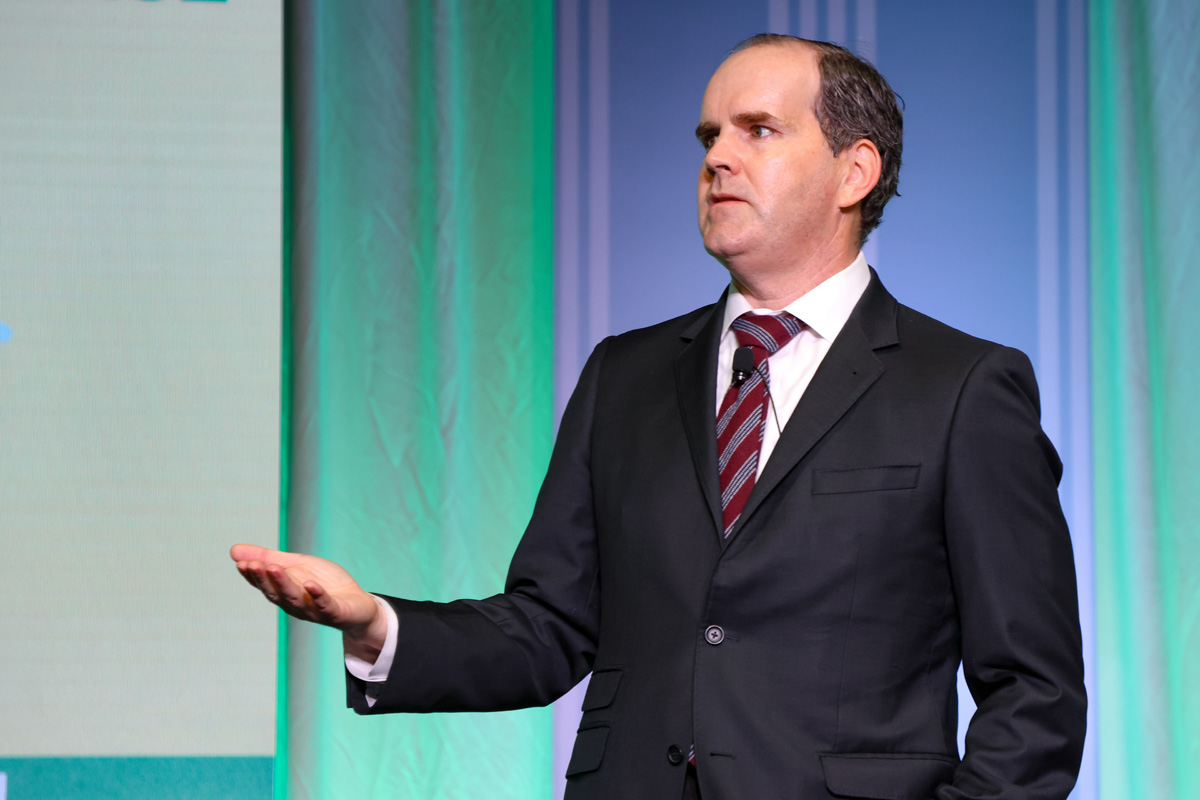
In a session dubbed “Resilient in Response,” League General Counsel and Legislative Director John Wilkerson provided an overview of the 95th General Assembly of the Arkansas Legislature, which he called “the most intense session I’ve been a part of.” That said, it was “not a disaster, not at all,” he added, noting positive and promising legislation aimed at easing the affordable housing shortage, streamlining rezoning and other land use issues. More challenging, he said, is Act 314, which passed by one vote and repeals cities’ extraterritorial jurisdiction, making it more difficult to plan for future growth. It is a setback, Wilkerson said, but there are still options. “There are paths through it, and that’s about resiliency: We know we can figure out a way through this.” When things got dicey at the Capitol, Wilkerson took comfort in the words of longtime city planner and League consultant Jim von Tungeln. “He said, ‘Cities have survived for thousands of years. We’re going to make it through this too.’” Looking ahead to next year’s fiscal session and the 2027 general legislative session, Wilkerson urged city and town leaders to remain resilient, educate themselves on the issues and to keep conversations going with their legislators. “Nothing matters more than the table,” he said. “If decisions are being made at the table and we’re not there, then they’re being made without us. We have to be at the table.”
More Convention 91 coverage:

